Don't wanna be here? Send us removal request.
Text
Of carrot cake and grief

Hey there Big Sis,
If you were here, you’d do that thing of laughing at me until your tummy aches. But tell you what; this thing you made me experience – this thing called grief – is not funny at all. I swear if you laugh, I’m telling!
First of all, no, you don’t “get over it”. No. You just learn to live with grief. It’s always there, like Dexter’s “Dark Passenger”, always in the shadows.
It’s been a year since we lost you. What I find strangest, sis, is how it pops up in the most funny and unexpected moments. The small triggers that bring it up, making me grieve again. Let me tell you.
I know you would laugh at me for the small things that remind me of you. These little things that make me weep again and laugh at the same damn time! Funny thing that.
Sis, the other time, I bought myself a slice of carrot cake. I opened the box and took a bite. Then I wept again, sitting in the car, the same way I had that morning when the news came. Why? Because this was ALWAYS your gift to me. When did I ever tell you I was coming to your house and you didn’t bake one of these for me?
Who knew cake would make me cry? That time you laughed at me saying, “ah, little brother, you are eating my business literally”?
And that’s the other thing; this odd sense of humour you had. There are jokes that I knew only you would find funny. I’d send it, and you’d reply with a voice note, laughing hysterically – even when you were in pain. These days, I come across that sort of joke. I glance at my phone. I know just the person who would laugh at this. Then I cry again. Then laugh.
Oh, and as for Shona and English homework! My kids here knew Tete always had the answers to school English riddles and Shona tsumo nemadimikira homework. Always! They didn’t even bother to ask me. “You wouldn’t know,” my daughter says. “But Tete does. Not you”. And there you’d go again – laughing hysterically at me for this. How they miss you, these treacherous minions you left!
And, Sis, remember that Christmas Day two years ago? We put up a “scintillating performance” – yes, you liked laughing about newspaper cliches like that one. We sang to Matavire’s Chando Chinouraya, with shades on? These days, it’s hard to hear that song and not think of you.
It wasn’t our first “scintillating performance”. Remember when I was a kid and you were a teen, and we’d pretend-perform Yvonne Chaka Chaka, pretending we were in a stadium? I’d be on guitar and you on the mic. In fact, I always told you that you looked a bit like her, back when you had that afro! How you’d laugh and tell me you’d one day be her backup singer! The other day, the radio played Yvonne’s “Take My Love Is Free” and I laughed so hard, with a tear in my eye. You won’t believe this; I met Yvonne in Harare and took pics. You’dve been so super jealous. If only I could send the pics and hear your laugh.
I miss you, every single day.
Oh, by the way: that cake shop’s carrot cake? Meh! Not half as good as yours. “Too grainy”, you’d say. Obviously, it misses that one key ingredient; your warm heart, your smile, your undying love for people. Your charity, rikave zita rako, dear sis.
Rest.
0 notes
Text
My Top 25 Zimbabwean songs of all time
One day, driving with my son, I sang along to songs on the radio.
He turned, gave me his trademark ‘look at this old mad’ side-eye, and asked: “Just how many songs do you know, dude. How many songs are in your head?”
Yes, he sometimes calls me dude.
I don’t know, I told him.
“Well,” he continued, “give me a number; 1000? 1 million? 1 billion? How many?”
Dude, I said, I don’t know.
And yet, here I am, sifting through these ‘1 billion’ songs to try and do the impossible; pick my Top 20 songs from Zimbabwe.
Like most urban youths growing up in the 90s, I didn't listen to a lot of local stuff. Now, much older, I've had to play catch up, and so most of my top tunes are from the early years.
How do I even start? Where? There are far too many good songs, songs from across too many genres, from too many generations. Each of these 20 songs that I picked carries a special memory for me, some sad, but mostly simply warm from my decidedly happy childhood (thanks Mom and Dad).
Except for Number 1, the rest of the songs are in no particular order.
Here goes.
Simukai – Pied Pipers
youtube
The Pied Pipers, a legendary Zimbabwe band from back in the day, gave me my favourite song. It’s not just my fave Zim song. It’s simply my fave song, overall. From that opening, rising keyboard note, Fungai Neganje’s lead guitar…and the lyrics.
When it plays, I travel back home, to my childhood, sitting outside on the lawn, in those ridiculously short adidas ‘Playtime’ shorts and North Stars, Simukai playing out of the Tempest radio speakers, eating a sherbet.
If I’m in a bad mood – which is not often – I slid on the headphones and this song, without fail, always makes me happy again. Play this at my funeral. Just make sure I don’t get up to swing to it.
Spirit – Andy Brown
youtube
This was not one of his biggest commercial successes, but, for me, this was Andy at the top of his game. The intro alone is a work of genius, the lyrics were Andy reaching into the depths of his talent, the backing vocals were on point. Two-minutes into the song, Andy delivers one of the best guitar solos of all time, by any guitarist, anywhere.
Wandirasa - Chiwoniso
She was 21 when she wrote this song. 21, guys, and yet such depth. Ancient Voices is, without a doubt, one of the best albums ever put out by a Zimbabwean musician. Years later, Wandirasa still makes you stop, listen, and fall in love with the song all over again.
Kutambura – Bhundu Boys
In terms of Zimbabwean bands, Bhundu Boys are my favourite ever. So it was hard to pick one. I had to play ‘pinky pinky ponky’ to pick this one. Kutambura, definitely, is one of the most beautifully written songs to ever to come out of Zimbabwe.
Kudendere – Harare Mambos
“Amainini mune matyira / kana iri purezha kumusha kune mabira / Kana iri mari tobike ndari / Toudza baba kuti kuno kune kakari…”
They. Don’t. Write. Like. This. Anymore.
They just don’t. The bassline. Virginia Silla’s vocals. That guitar.
Sarura Wako – Leonard Dembo
My number 1 song, from my number 1 artiste. The best Sungura intro ever, Shepherd Akim was imperious on bass, and Leonard’s vocals were that extra-smooth topping that made this song ever so perfect.
Ndakakubereka – Oliver Mtukudzi
youtube
My favourite from one of my favourites. Not one of his most famous tunes, but a personal favourite. It holds a special memory for me; It takes me to a hot day, sitting in the back seat of the car, driving down a long straight in the sugar plantations in Triangle, the song playing over the radio.
Ndibvumbamireiwo – Four Brothers
youtube
The lyrics cut deep, matched perfectly by the defiant tone Marshall picked for his vocals. Nothing was average here. Never Mutare’s bass, Frank Sibanda’s lead, and that constant rhythm from Alex Chipaika holding all down. There’s a 2-minute sequence in this song that simply defies gravity as these four guys just lay down their genius, for future generations to learn how to play. As a friend once said, “Marshall Munhumumwe achieved perfection” on this one (side note, at the end of the sequence, if you have good headphones, you can hear Marshall breath in to sing)
Thomas Mapfumo – Tinodanana
youtube
Never has a brass section been in finer form. Never. Everson Chibamu and Temba Ncube on brass, Charles Mayana on bass, Sebastian Ferado on drums, the legendary due of Jonah Sithole and Leonard ‘Pickett’ Chiyangwa on guitar. My fave Mukanya tune.
Zambezi to Limpopo – Midnite Magic
youtube
A song well ahead of its time, from a band well ahead of its time; Prince Tendai and Minite Magic created this absolute gem. Oh, the bassline.
Umoya Wami - Majaivana
Where does one start with this one? The deep lyrics, telling the story of displacement and pain? Or just the musical arrangement alone, which we speak far too little about. Sometimes I just slide on the headphones to soak in the instrumentation.
The River - Talking Drum
youtube
Michael Lannas had many great songs. But this one, oh man, how did they even do this? It’s a pure work of art. For some reason, it evokes memories of the aroma of toast, on sunny, chilled Saturday mornings at home.
Waiting for a New Day – Edwin Hama
youtube
Struggled to pick one from my two fave Ediwn Hama songs. The other is ‘Dreams of a Home’ (ku Gokwe tinoinda toseee). But this one has a special place in my heart for me. Had an uncle that loved Edwin Hama so much, and spent his temporary teacher’s pay on his records. He loved this one and we used to sing it. RIP Sekuru Adie!
Mwenza – Leonard Zhakata
Of course, the legend had many, many bigger hits than this one. But this right here is my jam. The language are so deep, I had to ask my friend Leonard Makombe to translate for me.
Pamuchato waTobias - Admire Kasenga
Once met Admire when he walked into our newsroom at The Standard to promote an album. One of the most down to earth chaps ever. Pure Sungura, the kind that’s missing right now. Danced all night to this, the night before my wedding. Woke up late. The thing almost went ahead without the groom and his biys.
Tobias Areketa – Vanondivenga
What more can you ask for from a song? Smooth vocals? Done. Brass? There you go. Bassline? You can’t play a bassline any better than that.
Kudakwashe – James Chimombe
One of my fave artistes. It’s a toss-up between this one, and another one called Rudo, which isn’t even one of his biggest hits. But this one really cuts deep. Remember watching it on Ezomgido and being totally absorbed by his genuine emotion.
Makatukura – Zig Zag Band
A band that holds special memories for me, being from my hometown and all. This one is my number one from them. A cutting social commentary on the 'haves' and the 'have nots'.
Shumaira – Dr Footswitch
A song played well before I was born, some time in the 70s, but one that I feel right in the chest. Loved it so much, named my daughter after it (kind of).
Tshisalanga – Ilanga
When they give out lessons on how to arrange a song, they should put this one in Tutorial 101. A band so full of talent, and they displayed it best here for me. Andy’s guitar, Don’s ‘mangled’ bass and his mournful vocals. This is what good music sounds like.
Ndinokudai – Family Singers
Takes me back to an interesting time in my youth. What a time. Using that bassline and percussion, these guys simply broke the walls; church music didn’t need to be boring. Zim Gospel music changed forever after this.
Zuva Rekufa Kwangu – John Chibadura
Once, an equally idle comrade of mine and I argued well into the night about which of John’s two big reggae hits was best. He went for ‘Mudiwa Janet’. I was having none of that. This one, for me, is absolute magic.
Nerudo/Zvikomborero – Cde Chinx
I will have to make a tie here. I’ve never been able to pick which ones between these two hit the hardest.
King Pinn – I salute you
Greatest Zim hip hop track ever. No contest. Tonderai Makoni was one special talent.
Carry The Message - Transit Crew
Growing up, we didn't have a lot of local reggae/dancehall. Transit Crew were our icons. When we visited mbuya in Mbare, all I wanted to do was run over to Stodart Hall, thinking I'd find Culture Tee there, chilling, toasting. Loved this song to bits.
3 notes
·
View notes
Text
According to the gospel of bling...
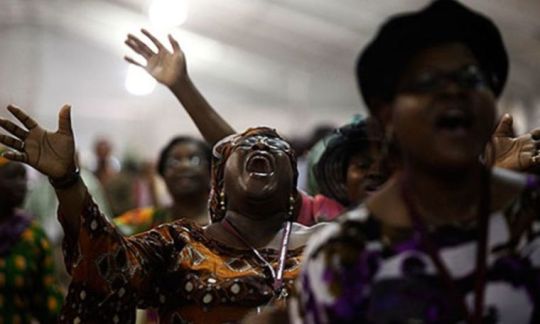
___
The young woman rocks nervously on her high heels and smiles uneasily as the prophet struts around her. She has had a hard time pinning down a man and she cannot get a job, we are told. Today, all her troubles will end.
"Many men have come and promised to marry you, but nothing happens. Is that not true?" declares the prophet.
She swoons: "Yes, man of God."
He responds: "Listen. I was with the spirit. I'm in a vision. We are travelling. By the power of the spiritual navigator, I am turning towards a junction. Unit K. Is that not where you live?"
She weeps. "Yes, pastor."
"I am at the door. The hand of the angel of God is on the door, so I can't see the whole number, just the numbers 7 and 5. What is your house number?"
"It is number 7715," the woman responds.
Bull's-eye. The church rises in a roaring mass, hands in the air. But wait: now for the big reveal.
"My sister," the pastor says, rubbing his hands as if he were counting money, then holding her hand. "I see you counting money. Money. You will need a money-counting machine. Money, flowing to you."
The "hallelujahs" rise and the band responds with a burst of sound.
Poster boy of the gospel brigade
The prophet is barely into his 30s, wears a velvet jacket, floral high-collar shirt and brown pointed-toe shoes. He goes by the name Uebert Angel. He is one of the poster boys of Zimbabwe's prosperity gospel brigade. They are in their early 30s, natty dressers who bag crowds yearning to fill the gap left by old-time religion: the promise of prosperity.
Who can resist that? The old churches still insist on Christ's teachings to "store up your riches in heaven". But why wait when the prophet in the velvet jacket says you can have it all here and now?
And so, over several recent Sundays, I found myself among the throbbing throngs in Harare's churches and stadiums, getting down to Nigerian Uche Agu's My God Is Good Oh, that impossibly catchy anthem of the prosperity gospel movement: "Everything is double-double, promotion double-double, my money double-double, my cars double woah."
We nod quietly to the parts about salvation. To the parts about wealth, we scream with delight.
They queue before the prophet, waiting for that word to spring them from misfortune. It goes like this: you are poor because of evil spirits. What follows is a microwave exorcism: a quick rap on the forehead, sometimes a whack from the prophet's jacket. Ardent membership, of which giving is a priority, seals the deal. Soon that elusive job, the husband, the business, is yours.
"Mine is a rich God. Why should his children be poor?" Angel says in one service.
'The overflow'
Although Angel is hot, he is no match for his close friend, Emmanuel Makandiwa, the lanky, charismatic 34-year-old who leads the United Family International Church, easily Zimbabwe's biggest prosperity gospel church. Here, prosperity gospel is staple fare. Every Sunday Makandiwa draws thousands of followers. The arena he uses as his church takes only 5 000; thousands more are housed in four giant tents outside, an area called "the overflow".
To accommodate everyone, he has had to split his Sunday service into two. A third service is held in nearby Chitungwiza, at the construction site of what he claims will be a 30 000-seat church.
Queues more than a kilometre long form at dawn for his morning service. Ushers in neon bibs ensure order, handing numbered cards to people waiting in line.
On Sunday, Makandiwa preaches about "possessing the promises". When the devil steals from you, he tells us, he replaces what was stolen twofold. Which is why, he says, when he crashed his Mercedes Benz S320, it was quickly replaced by a brand-new S600. To that, the couple to my left spring from their chairs, roaring, Bibles thrust in the air.
This church has declared 2012 the "year of results". What good is faith when you have no material results to show for it? it asks. So followers display stickers on their cars declaring how they have prospered: "I am a child of a prophet who brings results. This car is a result."
On sale at a kiosk outside the arena are more stickers declaring prosperity. For a dollar, I buy the one declaring: "I have the power of influence."
The pastors have a firm hold on their followers. The young pastors are called "papa" or "daddy". Every material gain is owed to Makandiwa. One of his senior pastors, Takura Rukwati, gushes: "Taking a hard look at my life, I can reveal that I had nothing to show in terms of material things before I met prophet Makandiwa. For example, the car I drive, the house I live in, the clothes I wear, even the button on my suit, he provided. Prophet Makandiwa gave me these things."
A class of partner
So, how do I get in on this prosperity stuff? I have to become a "partner", I am told. Being a partner means that I get to be one of those members that give more to the church than the ordinary people. The more I give, the more I am blessed.
Here is how it works: there are six different classes of partnership that vary according to how much you give. Classes range from "bronze", for giving $10 a month, to the "star" class for those who can spare $1 000 or more. You become a partner only after contributing for three consecutive months. Top partners get good front row seats and even get to hang around the prophet. That widow in the Bible, the one who impressed Jesus the most when she gave only a few lousy coins to the temple while the rich gave sacks of gold? She would not make partner, not even qualify for bronze.
On Mondays, in what used to be a movie theatre in central Harare, the partners of Angel's church meet. On the stage is a man in a grey suit and burgundy tie, warning partners against failing to meet their pledges. According to the teaching here, it is partners who are first in line when God opens "the floodgates of heaven". There is frequent reference to this scripture — Malachi's teachings on tithes.
These are not your ordinary, dog-collar kind of pastors. According to Makandiwa's website: "The man of God has received and continues to receive great revelations from God combined with the unusual ability to rightly divide and teach the word of God with such accuracy and precision worthy of an international minister for the kingdom of God who is and will be noted among the great men of God in the world in this era."
Who can resist that?
These are desperate times and people are desperate for answers to real problems. The pastors seem to have them. In fact, they know everything. "The only prophet in Zimbabwe who can prophesy your ID number," says Passion Java (23), whose church is called the Kingdom Embassy.
As he tells it, he discovered his gift in his early teens when he saw "a set of spinning numbers in the air", which turned out to be a schoolmate's ID number. "I was born with a special gift. When I was young, I used to have strange dreams depicting me in heaven, surrounded by angels. I have the power to foretell one's future," he tells me.
Pulling in the numbers
Of course, with the young guns pulling in the numbers, there are bound to be haters, such as the anonymous pastor who has been taking out full-page adverts in the Sunday papers recently, raging against "greedy false prophets pronouncing false blessings". Well, the prophets repeatedly tell us to expect this kind of jealousy.
Their marketing is snazzy and edgy to match the teachings of prosperity. Across the city, walls are covered with colourful posters. They feature prophets, dressed in colourful suits, standing next to pretty prophetesses, announcing a conference. One recently advertised conference cost as much as $100. But what is a few dollars when I will come out of there up to my eyeballs in prosperity?
In Harare, we have a conference for every problem. Having trouble being a successful man? There is the "Men's Transformers Conference" coming soon. On the banner, below the names of Angel and Makandiwa, is an image of Optimus Prime, the leader of the Autobots, the good robots in the Transformers TV series.
Having problems at home? There is the "Why Did I Get Married" conference for couples and the divorced. There is a picture of Angel and his wife under the title, scanned from the banner for a Tyler Perry movie.
Having trouble finding a partner? For the single and searching, there is the "One Night Stand Conference", the ad says.
At the bottom, as if to give an unintended warning to believers, the poster declares: "When you wake up, we'll be gone."
(Reposted from 2012)
3 notes
·
View notes
Text
Isaac Musekiwa: Our forgotten gift to Congolese rhumba
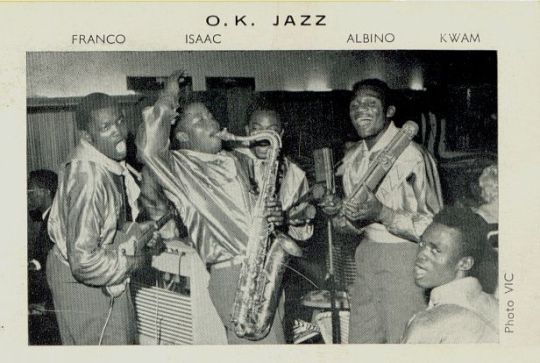
A lot has been said about the influence of Congolese and East African musicians on Zimbabwean music.
We know about rhumba and Kanindo, and how they gave us our Sungura. We know about the Congolese guys that moved to Zimbabwe over the years, making a major impact; Andrew Ngoyi and Joseph Kishala with their OK Success Band, which provided a base for many Zim legends. There was Real Sounds of Africa, Ghaby Mumba’s band, the chaps that sang those soccer songs, like Dynamos vs Tornados. Later, we had the likes of TP Nyekese (Ndochi), Diamond Musica and other DRC acts who came to Zim.
That, we knew. What many may not know is the story of one guy who went the opposite way.
His name was Isaac Musekiwa, an auto mechanic who went to the Congo in the 1950s and was to later become a key member of guitar legend Franco’s TP OK Jazz Band, the most influential rhumba band of all time.
Found the story intriguing. Here’s how the story goes;
So, Isaac was born around 1930 in Bulawayo. He moved to Salisbury in his teens, it appears. There, he would watch a local police band play, and would sneak into the rehearsal room where he taught himself how to play saxophone.
In 1949, a young Isaac moved to Lubumbashi, then known as Elisabethville, the capital of the mineral-rich Katanga province of the Congo. There, he worked as a mechanic and a driver by day, and a sax player in the local bars by night.
In Elisabethville in the early 1950s, publisher and saxophonist Ralph Benatar was doing the rounds in the pubs when he heard Isaac play. Within days, Ralph had convinced Isaac to travel with him to Kinsasa, Leopoldville then, where a new band was being set up.
Sax players were rare then. Isaac Musekiwa’s sax totally set apart the new band, African Jazz, from other acts. They had the sax player, others didn’t. He even wrote some English songs sung by Joseph Kabasale, band leader. This was a first in Congo. Most music was either Lingala or French.
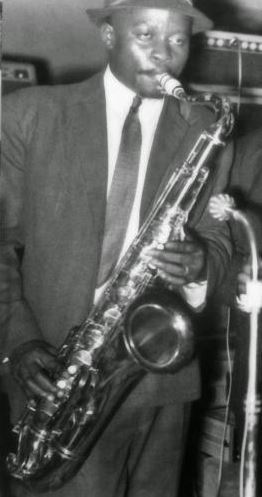
Isaac’s sax had helped redefine the rhumba sound then, developing a unique sound that came to be known as “The OK Jazz School".
Isaac became a much sought after studio musician. He then made a big move, joining Franco Luambo’s band, OK Jazz, in 1957. Over the years, Franco was to be Congo’s greatest.
The band came to be known as TP (Tout Puissant, French for "all powerful") OK Jazz.Isaac became close friends with Franco, for decades. In 1983, the band toured Europe and the US (it’s hard to think of many African, let alone Zimbabwean, musicians who toured abroad through the 60s).
Another member of the band was Sam Mangwana, the renowned vocalist who some also say was born of a Zimbabwean father, although that’s not too clear.
In his book Rumba on the River: A History of the Popular Music of the Two Congos, Gary Stewart interviewed Isaac while he was on tour in the US with the band in 1983. He spoke about how the band had completely changed how rhumba was played.
“There was music. Another kind of music. But when Kabasale started to sing, he changed everything. And when Nico and Baraz started to play the solo for the guitar…you see that’s how the music started,” he says.
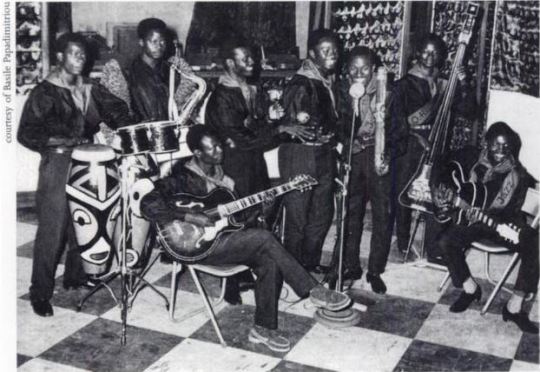
TP OK Jazz: Isaac Musekiwa, is 2nd from left. King Franco is on the front right
I’ve been searching high and low for more information on Isaac Musekiwa.
I reached out to veteran journo Ish Mafundikwa, one of my big brothers I go to when I want the lowdown on Zim arts and its rich history. It turned out Ish had actually met Isaac! They met during TPOK’s tour of Amsterdam. Ish wrote this article on Franco for Parade magazine in 1990.
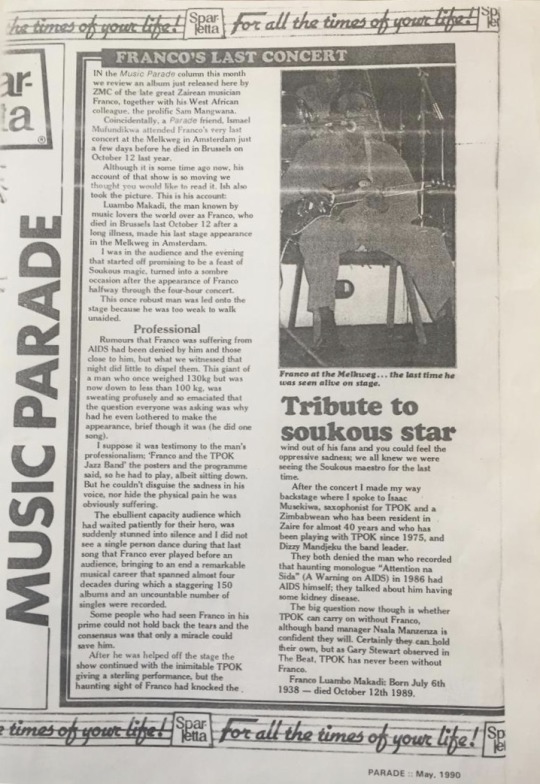
After this chat with Isaac, Ish had hoped to have a proper interview with the man, but sadly Isaac died before the band’s planned return to Amsterdam.
There isn’t much else out there. Just his music; the wailing sax. He was on top form on tenor sax on Como Quere, released in 1961.
He appears on videos of the band performing; in Abidjan in 1980. In Utrecht in Netherlands, and in Brussels.
I want to know how he did it. How does a guy in his teens leave his country in the ‘50s, to settle far away in the Congo, and make it? He was in the Congo when the country was in upheaval. Congo’s 1960 independence, the Lumumba assassination, the rise of Mobutu, and all the stuff that followed. He played sax through it all. And the language difference; how did he do it? It’s incredible.
It seems Isaac fought diabetes for many years, and was even taken ill while on that US tour. In 1990, a result of gangrene caused by diabetes, Musekiwa had one leg amputated. So ended his music years.
“We just liked music...”
He performed with Congo’s biggest and most successful band, under its most celebrated guitarist, but I doubt he ever made much money.
In one interview, he spoke with regret about all the many years wasted without getting what was due to them from all the tours and record deals.
“We were very young, all of us. We didn’t know that some records, you can get some money from that. We just liked music…”
In 1989, Franco died. Tens of thousands lined the streets for his funeral. Mobutu declared four days of mourning. There are streets in Kinshasa named after the great.
Two years after Franco died, Isaac Musekiwa died in Kinshasa. That’s how it ended, this stellar career of 30 years with one of Africa’s iconic bands. It ended in obscurity, far away from his country of birth, virtually unknown to his people.
16 notes
·
View notes
Text
The 5 rules of Zimbabwean political debates

Political silly season is upon us in Zim.
There are many political debates, online and in the real word. Do not be caught unprepared. In Zim, as we have seen recently, you can’t just approach debates like a normal adult.
In Zim political debates, there are these 5 basic rules;
1. Anyone that disagrees with you has been paid. They are captured. Why else would they be disagreeing with your obviously superior viewpoint? Obviously they have been sent. They’re an apologist. Who in their right mind would disagree with you? For free even.
2. Anyone that has a different opinion to yours is an ignorant victim of propaganda. Either Western or Government propaganda, depending on your own position. Is it not obvious that nobody else but you is capable of forming their own opinion without someone else’s influence?
3. Only the information you have is correct. Can these misinformed people not see that only you have the correct information? Wasn’t it on whatsapp? Didn’t we see it on Twitter? On Facebook? If it’s on the internet, it must be true. Tell these ignoramuses. Teach them. Drown their ignorant behinds in your bottomless well of superior knowledge.
4. Anyone that disagrees with you has a secret agenda. Because obviously you are so important that, in a dark office somewhere, a secret plot was hatched for people to come and disagree with you. They have been sent. It’s a plot. It’s a strategy. It’s a conspiracy. They’re after you and everyone that you support.
5. Everyone else is stupid. Basically. They’re idiots. Why else would they dare come against your obviously superior intellect? Do they not realise you have a sharp mind?
Now, remember, there are a couple of strategies to help you win debates. Yes, to win. Because we debate to win ka. These tactics have been used to good effect for years by bigoted debaters that have gone before you. Tried and tested. They work.
First, when all else fails, use insults.
In Zim, over decades of political intolerance and many random forms of BS, we piled up a large arsenal of insults to use in debates.
For instance, once you are losing a political debate, just accuse your rival of being a CIO/sellout etc. There’s no coming back for them. Because, even if they deny, is there a CIO who ever admits to being a CIO? They’ll always deny. Do you not see how very clever this trick is?
Or, you can accuse your rival – and this is a big one these days – of being an “intellectual”. Even in this country where people feed themselves the whole “takadzidza” stuff, “you intellectual” is an actual insult. It says “you are out of touch, you don’t know what’s happening on the ground”. You are agenest the will of the people. Once you’re accused of not being “on the ground”, my friend, it is late for you. Go home.
Use big words to shut down these intellectuals. Or clever-sounding prefixes, like “pseudo”. Or massive words like “myopic” and “naive”. Or “captured”. Or “apologist”. When you run out of all these clever-sounding terms, use the most widely used last-resort insult of Zim political debate: “Idiot”.
Second, do some straw-manning.
Creating a straw man argument is a useful tool. It is when, while in a debate, you swerve from the issue at hand and create a totally irrelevant pretend argument. You then proceed to completely defeat that argument which your opponent never made.
For example;
Your opponent: “I don’t like the way Dynamos played today.”
You: “So you are a staunch Caps fanatic? You Caps people…”
At this point, your opponent will try to wriggle out of the corner by using useless things like facts. They’ll try and say, “But I’m not even a Caps fa…” Don’t even let them finish, fam. Go for the kill. Deploy the earlier mentioned 5 Debate Rules in rapid succession.
You: “You’ve been sent. You’ve been paid. You’re captured. You’re a Caps apologist. You are a victim of Caps propaganda…”
At this point, you are winning a Zimbabwean political debate. Hands down.
Also, start some of your arguments with “some of us have always said this…” even if you never actually said anything that anyone remembers.
Soon, your interlocutor is on the run. They’ve fallen silent and you’re now replying yourself. You’re lashing out and shouting insults into virtual caves. Nobody’s answering except the echos of your voice. You’ve taught them a lesson.
They should have never tried, these weak debaters. They stood no chance against your obviously superior intellect.
+ۆq=
8 notes
·
View notes
Text
Gwabi gwabi: The forgotten legend of George Sibanda
youtube
Here’s a story about how a folk song from Bulawayo became a cult classic in America.
Sometime in the 1940s, there was a dude called George Sibanda, plying the bars and halls of Bulawayo with his acoustic guitar.
There was also a fellow called Hugh Tracey, a famous ethnomusicologist.
(The term “ethnomusicologist”, by the way, is white-folk speak for white guy who claims to discover black folk music, eminent saviours of ‘ethnic music’. But that’s another whole debate).
Tracey had been prowling these shores for music since the 1920s. His biggest “discovery” was August Musarurwa’s world famous “Chikokiyana”, or Skokiaan.
Now, 1940s Bulawayo was quite a scene. Many young men and women were moving there from around the country, seeking jobs in the booming factories. Naturally, the music scene was vibing. Among the budding stars was George Sibanda, and his guitar.
Around the time, Gallo Records, a major recording company in South Africa, was looking for new sounds to record. That’s how the likes of Sibanda and other contemporaries such as Josaya Hadebe and Sabelo Mathe got their break.
By some accounts, George’s first recording with Tracey, the children’s folk song Gwabi Gwabi, is the first commercial recording in this country. It was not until 1959 that a commercial recording company set up shop, with the opening of Teal Records (what we today know as Gramma).
Gwabi Gwabi was recorded and released in 1948 under the Decca label, as part of Tracey’s Music of Africa series. And that’s how its crossover story started. The record was reissued in Europe in the ‘50s, re-released on a 12-inch by Gallo in SA in the ‘60s, and issued yet again in the early ‘70s. It was that good.
Gwabi gwabi kuzwa ngile ntombi yami ihlal’ enkambeni shu’ ngiyamthanda
Ngizamthengel’ amabhanzi iziwiji lebanana
In the ‘60s, an American folk singer laid his hands on Music of Africa. The guitar-plucking and infectious voice of George of Bulawayo were obviously too hard to resist. Soon, the record was being played by guitarists in the unlikeliest of places in America; redneck bars where struggling country and folk singers were used to playing songs about poor harvests and cattle.
Soon, there was something of a scramble to record Gwabi Gwabi among folk singers. The track was soon on a musical review, Wait a Minim, and was recorded by dozens of folk singers, among them singers with names such as Ramblin'Joe Elliot, Taj Mahal and Arlo Guthrie.

It gets weird.
For some reason, Decca had released the song in the West as “Guabi Guabi”, and not Gwabi Gwabi. Also, Arlo Guthrie, one of the folk singers, decided that “gwabi gwabi” was a name, “Guabi”.
Guthrie had decided it wasn’t enough just to sing the song. It had to have an exotic story to it, you see. So he made up tales. The song, he would tell his audiences as he performed the song across America, was about a thief called “Guabi” who slipped on a banana and fell out of the window of a police station.
Early in 2017, I came across a video of Arlo Guthrie performing the track somewhere in America. He told the story of how a bunch of African musicians had stood in awe when he sang them this old Ndebele song. Knowing nothing about his career, they encouraged him to take up music for a living!
Gwabi Gwabi was a major hit for Arlo Guthrie.
But for George, it had been a starkly different tale. He did find some fame, playing to audiences all across Southern Africa. His fame had gone beyond the region; he had fans as far afield as Kenya.
George recorded 15 tracks, according to Joyce Jenje Makwenda in her must-read book, Zimbabwe Township Music.
That music was recorded in the ‘40s, a time many local crooners were aping American music (sleek dark suits, hair gel and Stetson shoes a la Nat King Cole and the like). But for George, his style was “not directly imitative of American and other foreign models”, according to an account by Thomas Turino in his book Nationalists, Cosmopolitans, and Popular Music in Zimbabwe.
But Sibanda got precious little for his pioneering efforts.
In 2004, a compilation of over 20 of George Sibanda’s songs was released. Pictures of him are hard to find. I have searched, high and low. Michael Baird, who wrote the 2004 album’s sleeve notes, even put out an ad in the Chronicle, hoping for a picture, but never got one.

According to one article: “The lyrics of the album tell stories of the industrialization of the cities of southern Africa in the middle of the last century, of train stations and airplanes, of hip urban gangsters in their fancy dress, of rowdy nights in segregated bars and of young men struggling to collect the cattle needed to pay the bride price to marry their hometown sweethearts.”
Nobody knows exactly when the legendary George Sibanda died. Several accounts say he died of alcohol poisoning sometime in the 1950s.
To this day, in many small-town bars in America, they still play Gwabi Gwabi. At home, even among those that grew up singing the song as kids, few have ever heard of the legend of George Sibanda, the pioneering guitarist from Bulawayo.
2 notes
·
View notes
Text
What if these are the good old days?
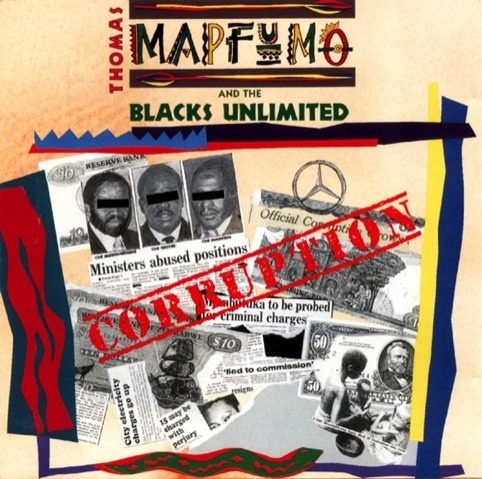
What if these are the good old days?
These days in which I see pensioners outside NSSA’s bank at dawn, having slept there all night, waiting for a few dollars’ worth of pension?
These days where folks are losing jobs? Highly qualified young people, bursting with ideas, are jobless, drinking their desperation away, and waiting for their chance to leave?
Yes. these same days? What if these are better days?
The other day, I was listening to a lot of Edwin Hama. He complained about “unemployment doubling”. He said “it’s too hard to handle”. He screamed “ndasauka” (I am finished). He was singing all this as if the sky was falling. And this is the early 1990s.
You know how we Zimbos like comparing problems? That whole annoying “my problems are worse than yours” thing that we do? Yes. How I wish I could travel back in time and annoy him like; “Edwin, my brother, you ain’t seen nothing yet.”
You sing “the dollar is getting small, day by day every day”? Well Bla Eddie, I would say to him, at least you still have your own currency. In my time, we use dollars from America to buy bread and bananas on the streets.
I would tell him, one day, some people will look back at these years of yours, Edwin, and tell you they miss the 1990s. I will watch the shock on your face.
I will tell you that there will be something called YouTube and, under your song singing about your nation’s “asila mali” troubles, the nostalgic ones will still write: “This was when Zimbabwe was still Zimbabwe.”
And as for you, Mr Thomas Mapfumo? Your whole nine-minute song whining about “corruption in the society”? I want to go back and say, “Mukanya, sit down, they haven’t really started”. This sort of corruption you sing about, Mukanya, I will say, at least now they pretend to be ashamed of it. One day, they will lose all shame.
In the future, they won’t even hide it. They will steal and flaunt their bounty on something called Instagram. They will call it entrepreneurship. They will shame anyone who doesn’t have it as lazy.
Whole government officials, in my time, Mukanya, will take public money and justify it in big-worded press statements. They will go to rallies and, while their victims bake in the sun, scream in defence of their privilege, and their corrupt buddies.
I will go find Solomon Skuza. That song of yours about the Justice Sandura Commission, the tune “JSCI”, makes me laugh, Jah Solo.
“There will be no more buying and selling. They’re gonna fight, fight, fight, fight to end corruption,” you sing. El Oh El (that’s how we laugh out loud these days, Jah Solo)! You’re so funny!
No, Jah Solo, they’re not “gonna fight, fight, fight to end corruption”. They will fight, fight, fight, to eat. One group will fight among itself to eat. Another group will wait outside, shouting, and baying for its turn to also eat.
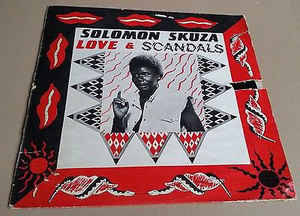
As for your question, Jah Solo, in your other song Love and Scandals, “how can someone buy a car and sell it again”? Do you mean people merely buying Cressidas from a government supplier at a discounted price, and selling them at a profit, is a scandal in your time? Shocking. Amateur stuff.
Jah Solo, this poor comrade in the news who killed himself because of guilt? The one who wrote the book “Among The People”? Yes, that comrade. He shouldn’t have bothered.
It’s a minor misdemeanour, in my time, Jah Solo. I see your shock. I swear.
Sorry, my guy Leonard. In the future, these greedy ones that you sing about today in Chinyemu? Those ones who take from you the poor worker and give to the rich? They will no longer be the subject of ridicule in your song. They’ll be called patriots.
I will also laugh at Simon Chimbetu, who, in the voice of a war vet, asks a party chef, “muitaure yehupfu hwevana vangu”. When you go to your big meetings, he sings, please discuss the small matter of feeding my children.
You are lucky, Cde. You mean here in 1997 when you’re singing this song, with all these strikes and currency troubles I see you’re now facing, it’s a thing to discuss the economy in Cabinet? These are good days, Chopper. In the future, the Cabinet will sit and discuss panties. Or, more accurately, the absence of them. Honest. Don’t laugh, Chopper! I kid thee not. Panties, cadre! Easy!
Ask Zhakata, Chopper. He thinks he’s seen the worst here in the 90s, singing about greed and the denial of what’s due to him in Mugove. Ask him. In the future, he’s shaking his head a lot.
No, Majaivana wasn’t a prophet when he sang “leli lizwe kalila mali”. Wavele wabona uMajee? Nah. He was singing about a crisis at the time. And yet, today, uMajee would read the news from home and laugh at himself for having wailed about a broke nation in the 1980s.
And then, after I’ve self-righteously lectured these legends to stop whining and appreciate how good they have it, someone from my own future will come and give me the same lecture. What if they say; you have it good?
That, just like those that went before us, we too tell ourselves “it can’t get any worse”. And then we watch as it does.
Mapfumo’s corrupt are not only getting more corrupt; they’re getting more brazen and arrogant in their corruption. The people Solo sang about don’t even pretend to investigate corruption anymore. For who?
Have I seen today’s paper? Yes Edwin, I have. And it’s worse than yours. And my greatest fear? I fear the headlines will be worse tomorrow.
Maybe there’s nothing we can do about our fate. So, maybe I shall all go back to the 90s, find a carefree township, dance to Matavire’s Nhamo Yousavi – and then simply refuse to ever come back to this future.
After all, wasn’t it Matavire who sang “takura nayo (nhamo), tatindivara” (been there, done that, I’me now numbed by pain)? He knew we’d need to get used to it.
Or we must refuse to give up. And choose hope. And choose, amid all the despair, to treasure and savour all the good that’s around us right now. To make the most of our time with those around us. To create good memories today, for tomorrow.
And wait. Just like Edwin Hama sang, “waiting for a new day, waiting for a new time, hoping for a new life, wishing better to come”.
2 notes
·
View notes
Text
Roger, over and out: Chinx and the rhythms of unity
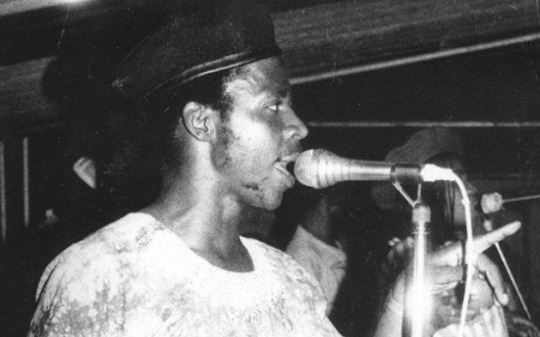
It was 1980. The war was over, freedom was in the air.
Within days, a new country, Zimbabwe, would be born. There had been songs to win the war. But now, new songs were needed. Songs of celebration, to capture the mood.
Cde Chinx had just returned from the Dzapasi/Foxtrot Assembly point in Buhera. They asked him to write a song to be performed by a choir at Rufaro Stadium, where the Union Jack was to be lowered, replaced by the new Zimbabwean flag.
Prince Charles was in town, to take back the Union Jack to Britain.
So, as Prince Charles settled into his chair that night at Rufaro Stadium, the song Mukoma Charleh was heard for the first time. One part mockery of Britain, another part celebration.
“…Mukoma Charleh, takura shoko unopa Mambokadzi … You better carry our message to our Honourable Mother, Her Majesty, the Queen, tell her Zimbabwean people were the happiest on that day, 18 April, Nineteen Eyiteh, when Zimbabwe became real independent country. Saying real. It’s real. Very, very real. Takura shoko unopa Mambokadzi, Mukomah Charleh..”
Charleh got his flag and left.
Chinx had staked his claim as one of the many voices that came to mark the tough transition from war. It’s a role he was to play even more in the early Independence years.
After Independence, war vets were given jobs in government institutions to help them settle. Chinx found himself at ZBC. But the job of transmission controller never caged his passion.
His old choir mates were still around, and Chinx tried to get them to record. But the big, white-owned record companies then, such as Gallo, were so over the war choir stuff. They wanted new, urban stuff to reflect the vibe of the time.
Chinx spoke to a friend, Maria Gazis. Did she know anyone in the music business, he asked? He was in luck. Gazis knew two people in the business; Jane Bartlett and Benny Miller.
Miller had been part of the Otis Waygood Blues Band, a punk rock outfit that had rocked Rhodesia since the 60s. He’d also been front man for a hard rock band called Klunk.
Soon, Chinx was spending nights at the Millers’, making music well into the night so he could still make it back to work at ZBC in the morning.
So, here you had it: On one side is a war vet, fresh out of the bush where he had been leading choir songs mocking white people - “kumusha kunonhuwa nhamo, mhino dzakareba” – a man whose grandfather Chingaira, after whom he was named, was beheaded by white settlers. On the other is Miller, guitarist for an all-white rock band. Different backgrounds, making great music together.
This, right here, was the new Zimbabwe.
Chinx played no instruments, so he would verbalise the instrumentation he wanted. “Play it like this… bham bham bham bhaaam bhaaam”.
Then another reconciliation thing happened. There was a genius white kid, a keyboardist, that Miller knew. Keith Farquharson was his name. He could play anything on his synthesizer. He soon joined up.
That was how the first new independent music label in Zim was born. They called it One World Records, fittingly. Their first recording, Marching Together, was a reflection of themselves, and their time. A black war vet fresh from the war front, a white punk rock artiste, and a teenage keyboard wiz recording together in a country still struggling to reconcile after 90 years of racial bitterness and war.
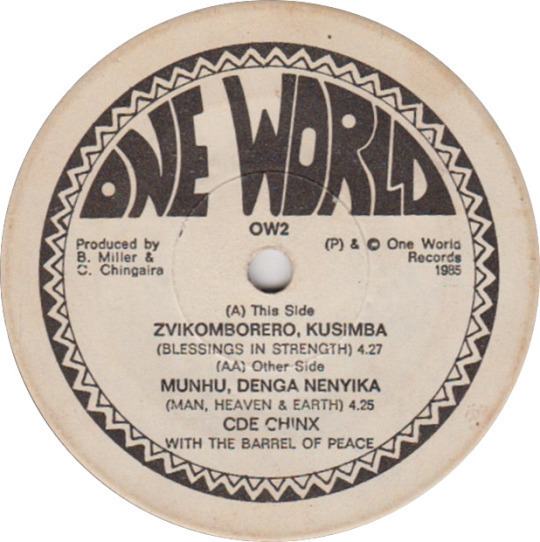
“I dearly want to believe, that the people ought to unite…Marching together, it binds us together,” Chinx sings, to the accompaniment of Keith’s screeching synth.
It was under this One World label that two other new talents came to the fore; Don Gumbo and Andy Brown. Chinx and Keith were recording as the Barrel of Peace at the time. Ilanga, with Don Gumbo and others, was just taking shape. Their arrival meant Keith didn’t have to play everything on his synthesizer any more. There was now a proper bassist, Don, and a guitarist, Andy.
This is how they ended up recording and performing together.
But it appears their relationship with Chinx was never that warm early on. Chinx never felt the Ilanga boys supported him enough. When he needed to record Ngorimba, they didn’t show up.
To put down a first cut of the song, he had to scramble together a few old comrades, a mbira crew called the Revolutionary Recreation Group. He still needed vocals. Doreen and Busi Ncube, two talented sisters, came to his aid. The other vocals were provided by a certain guy, Oliver Mtukudzi. Yes. That guy.
In the end, Ngorimba was recorded, and became one of Chinx’s biggest hits. The song, again, was about the unity he lived; the mix of traditional and modern instruments creates good melodies, he sings. Why can’t we learn from musical instruments, he asks. Our diversity can produce good things.
The Barrel of Peace days gave us songs such as Zvikomborero, a massive hit recently sampled by Alexio Kawara, one of my fave artistes.
Then there’s my personal favourite Chinx song, Nerudo. From the first strain of Keith’s bassline, I could hear Chinx instructing him, by mouth, how it should sound: “bham bham bham bhaaam bhaaam”
Somewhere, midway through the track, the two have a convo;
“Nhai Keith!” Chinx shouts.
“Chinx” Keith replies.
“Hanzi nababa, rudo rwusingachepi chete ngerwani? Ngerweruzhinji”
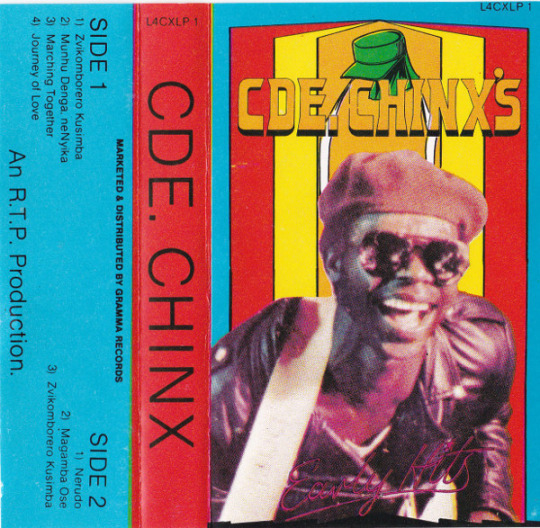
He never stopped singing about unity, through the Mazana Movement days. Who can forget Roger Confirm, arguably his biggest hit?
Somewhere in those ungovernably indecipherable lyrics is the same call to unity that he loved.
“The promising truth of our living, that of becoming one world, hwani people, one neeehshen, to the same destiny to the right….to the good of all…”
And, and…
“…the winning buzzword we love is that of reconciliation, to be one, enemies to become friends…”
Half the time, we hadn’t the foggiest idea what he was on about in that song. But we understood. Somehow, we understood. We felt the song. We felt him.
And who can forget watching Chinx, in that video, dancing on the Africa map, singing Vanhu vose vemuno muAfrica?
As Alec Pongweni puts it in his book Songs that Won the Liberation War, this song was a “vivid description of the indomitability of the human spirit”, and a call for cadres to be “united in purpose”. Years after it was composed in the camps by Zanla, Chinx brought it to life, and did it so well that some wanted it to be the national anthem.
“Vanhu vose vemuno muAfrica, tamirira kuchipedzisa zvehutongi hwemarudzi ekunze, ayo akaunza rufu, kudai tachibatana tikurire…”
Like many war vets, his relationship with his own government was never easy. An enduring image of Operation Murambatsvina in 2005 was that of a defeated Cde Chinx sitting on the roof of what was left of his destroyed home in Unit M, Chitungwiza.
This was despite Chinx’s role in the Hondo Yeminda series, songs in praise of land reform foisted upon us through the early 2000s. His critics want this part of his career to define him, but there really must be no shock about a fiercely Zanu PF man, one who went to war to fight for land, singing songs in praise of a Zanu PF government’s programmes.
He never changed. Even when he sang songs critical of his party, it was never from outside of it. Gedye Yaramba, is a cry against the economic crisis at the time. He even sang Musadzingane Mumusangano, which is all rather self- explanatory.
In life and in music, he was all about unity. In his death, with tributes from all corners, he defies division still.
I am happy that many have refused to allow debate about Chinx and his contribution to Zimbabwe to be bogged down in petty party politics. Or to even debate whether it matters if a Politburo of the likes of Chombo and Chipanga decides for us whether Chinx is a hero or not.
After all, these are the people that have for years let down war vets, Chinx included. They stand square against the values of hard work, honesty and unity that he sang of and lived.
Over his coffin, they would wave fists, make long speeches and chant the slogans that they have cheapened. The band would play Nzira Dzemasoja, a song urging respect for the masses and cautioning against greed; a song that they only use to bury their dead but never apply to their living.
No. It’s not for them to determine Chinx’s place in the history of Zimbabwe, or his place in our hearts.
They are, frankly, not qualified.
Not even worthy to hold his bhareta.
Alexander Kanengoni, the late war vet, writes in his novel Echoing Silences: “What I fear most is that we will not leave anything to our children except lies and silence”.
Thankfully, Cde Chinx left us his music to tell us his truth, and that of many other comrades like him.
Rrrrrrroger!

(Listen to the album “Cde Chinx’s early hits” here)
2 notes
·
View notes
Text
Vanhu vose vemuno muAfrica...

Vanhu Vose vemuAfrica. The lyrics below are from the original done by the Zanla choir.
_____
Vanhu vose vemuno muAfrica
Tamirira, kuchipedzisa zvehutongi hwemarudzi ekunze
Ayo akaunza rufu, kudai tachibatana tikurire
Ngatisumudzire mbiri dzeruzhinji
Rwenyika ino, rwekuAsia, Latin America, neAfrica
Idzo dzaiparadzwa nemhandu
Midzimu tikomborere tizvitonge
Tichisanganisa ropa remagamba royerera semapopoma
Pfungwa dzangu ndidzo dzinefungo dzevanhu
Muropa rinoyerera rusununguko
Nekushinga kwatiunza mukufa kuparara
Musango nemumakomo nemunzizi
Tichibatanidzwa nerudo
Inhamo tichinunurana
Asi tinokunda
Mukukosha kwayo Zimbabwe neropa
Iropa revaridzi vayo
Rayazorwa nevepasi
Midzimu titungamirire tirarame
Kufa kuchiuya nhasi
Ndotambira nenhengo dzose dzemuviri wangu
Wabva shungu nemhiko
Basa rangu rozadziswa
Mhiri kwatiri
Moyo wangu wanzwa nyasha
Kumirira veruzhinji
Segamba ndanunura, baba
Ndashongedza nyika kusununguka
Chishongo chinokosha
3 notes
·
View notes
Video
youtube
______
Wells Fargo - Watch Out
_________
Yes, rock n roll was once a thing in this country.
Here is a band called Wells Fargo, a Bulawayo band from the early 1970s. I was pleased to learn that several of the band members still live, and still play music. Virginia Phiri, Ebba Chitambo, who was on drums and vocals, and bassman Never Mpofu.
Incredible longevity; Never was more recently a big part of Tuku’s Black Spirits through its peak years in the 2000s.
You can read more about ‘70s Zim rock music on this article here: http://www.nowagainrecords.com/there-was-rock-in-70s-zimbabwe/
0 notes
Text
Censorship bored...

Good news, at last.
A new Censorship Board has been appointed in Zim, headed by Aeneas Chigwedere.
Historian, former Minister, and guy who is in court fighting his kids over witchcraft. And guy who is fighting a cousin over huSabhuku in Hwedza.
Perfect fit for the job, Aeneas is.
In case you are wondering, and you want to bore everyone with your obsession with “real issues”, those people on the Board do some critical work.
Not long ago, The Standard reported: “The board keeps different types of vibrators and dildos impounded over the past two years”.
Thankful.
And the time Hollywood released 50 Shades of Grey. After the Board gathered in a dimly lit room to watch the film on our behalf, they immediately recognised it for what it was; a sleazy Western plot to distract comrades from defending the gains of the struggle. They banned it, naturally.
And also Wolf of Wall Street, that unhinged piece of capitalist propaganda.
Oh. Spare a thought for former Censorship Board chair Heyi Malaba, who, at 94, had to sit through 50 Shades, just for our sake. Oh, his poor old heart.
And not to forget that, according to the Board’s spokesman in one press article, part of their job is visiting seedy downtown bars, and carefully inspecting the raunchy dancers there, just to ensure our morals are not violated in any way.
Imagine. Out there at Londoner at 3AM, while the rest of us are sleep, safe in the knowledge that our hunhu is safe in the hands of these noble defenders of our moral fabric.
As the pic on top shows, raunchy dancers must present themselves before the Board, in their raunchy dancer regalia, to exhibit their craft, at which point nods of approval shall be given from around the Board table.
On condition, they say, that “such act be presented to the public in the way and manner presented to the Board”, and crucially, on condition that the G-string “should not be smaller than those exhibited to the Board.”
Spare a thought for the Priest who now sits on this panel. Having to sift through reams of porn and “exhibitions” by scantily dressed Delilahs - all for our benefit - will require strong faith. May his rosary be close by at all times, to clutch at and do a few Hail Marys when those demon temptresses in g-strings come for exhibitions.
Imagine. Such selfless sacrifice. Reward each of these gallant guardians of our imperiled morality with a nice, plum allowance. Give them! It’s not an easy job, watching dirty films, sifting through dirty pictures, and having dirty dances “exhibited” before them on our behalf.
“To be the best providers of moral guidance and advisers to the public on entertainment matters in Zimbabwe”. That’s what the Censorship Board mission statement says.
Because, of course, we need to be protected from ourselves.
Comrades, in these critical times, let us not be distracted by news of impending power cuts, cash shortages, school and factory closures and some such trivial distractions. Boring!
We have more pressing national issues to worry about.
Especially those dildos.
1 note
·
View note
Text
Lord of the ring...

“In the land of Mordor, in the fires of Mount Doom, the Dark Lord Sauron forged in secret a master ring to control all others. And into this ring he poured all his cruelty, his malice and his will to dominate all life.
One ring to rule them all….”
~ JRR Tolkien.
o��>=
0 notes
Text
A tale of two parties...

In the same week that the Chinese Communist Party (CCP) released details on its conference debates, Zimbabwean media were also awash with stories on Zanu PF conference preparations.
Looking at the state of debate in the CCP, and then the level of debate in the Zanu PF provinces, one got a stark reminder why one of the countries is a world economic power, and the other is struggling.
A bit of background;
The CCP is the ruling party of China, with a strong hegemony over the country. For decades, it has driven the agenda in China. Through various committees, the CCP directs how China is run, from politics to economic policy.
There are some loose similarities with our good old Zanu PF, this “long-time friend” of China and the CCP. (cue Rueben Barwe: “rrrelations between Zimbabwe and China det beck to the days of the liberrration strrrago”)
Zanu PF, like the CCP, has a stranglehold on how Zim is run. Its roots run deep; in parts of the country, it’s a way of life more than a party. The party holds a strong majority in Parliament, which it won back after 2013, having lost it for the first time ever in 2008.
Sadly, that’s where the few similarities between these two old friends end.
And nothing paints the contrasting picture better than the difference in the parties’ conferences and congresses.
Through October and November, the CCP holds its annual conference and a two-day working committee meeting.
In December 2016, the CCP held its Central Economic Work Conference, where progress in one of the world’s biggest economies was examined. This conference was preceded by a meeting of the 25-member Politburo, where it was announced that the CCP’s economic plan in 2017 would be centred on “seeking progress while maintaining stability”.
A look at what all these meetings have debated is a lesson.
The CCP debated its expectations of economic growth in 2017, having been content with the 6.7% growth in 2016.
While upbeat about its targets, the CCP debated "many outstanding problems", among them idle capacity and financial risk. They debated how to react to this, with suggestions made on “deepening supply-side structural reforms”.

They debated agricultural reforms, and nurturing new growth drivers. They debated how to unleash consumption, and to attract foreign investment in the new year. Then they debated financial support for poverty alleviation, funding for small businesses, and industrial innovation.
China is run on the CCP’s five year plans. The current plan started running in 2016. It is a detailed plan on “the task of stabilising growth, promoting reform, adjusting structure, improving people's livelihoods and guarding against risks”.
Among the major points of debate within the CCP right now is what to do with the country’s state owned enterprises.
Three years ago, during the CCP’s 18th Party Central Committee, China introduced a reform plan. It was called the "Guiding Opinions of the CPC Central Committee and the State Council on Deepening the Reform of State-Owned Enterprises". It’s a mouthful, but it is a plan that came after much debate, which continues to this day, about how to reform parastatals.
Just like in Zimbabwe, parastatals in China have a big impact on the country’s economy. They employ more than 30 million people. The 2016 first half-year gross revenue of SOEs was RMB21.39 trillion (about $3 trillion). That’s more than 60% of China’s GDP. So there was massive debate in the Chinese ruling party at conference; do we focus on making them efficient, do we merge them, or do we do away with them entirely?
The debates within the CCP on the economy are endless. My point however is not on what the CCP is discussing; it is on the fact that the CCP is actually discussing all this at all.
Now, let’s cross over to Zimbabwe, and weep a little. Each December, Zanu PF holds its own annual conference where, according to the leadership, the party “takes stock”.
However, the major talking points within Zanu PF and within the CCP meetings could not be more different.
The headlines tell the story. One article quoted a senior Zanu PF official “daring malcontents” to try and stir up any debates on power. Another headline celebrated a suggestion that all provinces should have permanent conference venues. And yet another quoted an official boasting that the conference will show that Zanu PF “remains in charge”, as if this was ever in dispute.
The contrasts with the CCP are pretty sharp. And, no, it’s not because the CCP does not have its own power struggles. While Zanu PF grapples with the “one centre of power” issue, the CCP’s recent meetings also reaffirmed President Xi Jinping as “the core” of the party, a position only a select few in the history of the party have been given.
CCP has total power in China. And yet, what the CCP has done with its power is to drive China into a global economic superpower, despite all the internal power plays that the party has to deal with. Meantime, Zanu PF has so far failed to harness its two-thirds Parliament majority to steer the national agenda, let alone drive the economy out of trouble and meet at least some of its election promises to supporters.
The debate in the CCP’s organs, from its Politburo to the Central Committee, is on issues of substance; how to grow their already powerful economy, how to dominate the world economy, how to make the lives of Chinese people better, how to help small businesses.
The debate in Zanu PF organs is on issues of individual power and greed; who should have what post, who should be suspended, which slogans should be banned, who is more loyal, who has a coffee mug, who abuses Twitter and what what.
China used to be like us, until they got tired of mediocrity.
They realised that real global influence comes only with economic clout, and not slogans.
Look; no patient cares about slogans when they are waiting in line for drugs at Ngomahuru hospital in Masvingo. Drugs that, if at all there are available, are donated by some “hostile” foreign government.
The child learning maths in the mud-and-pole classroom at Bunsiwa in Binga doesn’t really want to know about where the centre of power lies, do they? Neither does the unemployed graduate hawking fast-rotting mangoes to travellers out of his tin bucket at Kudzanai Bus Stop in Gweru care too much about which faction is gaining traction these days.
People who are well fed and content wouldn’t care too much about which faction is occupying power.
Maybe one day, Zanu PF conferences will be more like CCP’s. More a platform for relevant, forward-looking debate on real needs, and less an annual ritual of deceptive grinning, slogan-chanting and bone-chewing.
Zanu PF strives for as much influence over Zimbabwe as the CCP has over China. However, Zimbabwe’s ruling party has much to learn from CCP; it’s not about just having power, it’s about what you do with it.
Walk this way, China says.

____
images: Xinhua, CCP
2 notes
·
View notes
Text
Bill Saidi: The last of the great ones
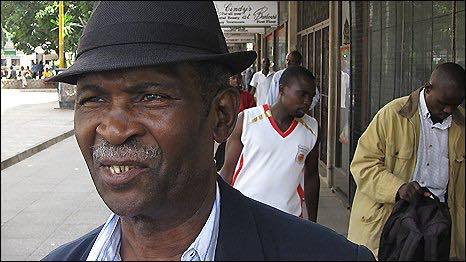
Bill Saidi was indeed one of the last great ones.
It feels really disrespectful, having to use a cliché to describe Bill. If I’d written that in a story, he would probably have shaken his head, stood up from his desk, put his hat on and walked away, I imagine. But it’s true; he truly was one of the last great ones.
Bill and Sam Munyavi, also sadly late, were the two columnists I followed the most back in the day. They were my heroes. (you can read about Sam here)
Journalists my age only discovered Bill when he was already well into the twilight of a great, long career. It was only through reading his columns, and his book, that one got to know he’d been around quite a bit.
His book, launched in 2011, was called A Sort of Life In Journalism. The title was vintage Bill. Self-deprecating, never taking even his great history in the profession – one in which he met many world leaders, fought white supremacy and traveled the world – too seriously.
He once wrote about how a friend had said to him: “William, you don’t blow your trumpet often enough”. He was “flummoxed” by this suggestion that he speak more often of his achievements, he wrote, “whatever they are”.
A big difference with my generation, and newer ones. Today, newsrooms are getting too small for the massive egos they carry.
I met Bill in 2011 at his book launch. I was so, so keen to chat to him about the music scene back in his day. He had been a singer for a group called the Milton Brothers in the ‘50s, an era in this country that fascinates me a whole lot. That was when chaps sang in groups, used buckets of hair gel, wore black suits, stetson shoes and idolised black America. Dudes were on some Nat King Cole vibe.
At the time, the local scene had names such as De Black Evening Follies, The City Quads, the Epworth Theatrical Strutters, Capital City Dixies, Golden Rhythm Crooners (which was to later give us the legendary Cool Crooners). He was fascinated that a young (OK, OK, relatively, young) guy knew about this music. I explained to him; blame my dad’s old records and his tales of Sonny Sondo, the Mattakas and all the many others of that golden era.
We spoke like mates, even though he was exactly my old man’s age.
The wit was just as sharp as in his columns. It’s guys like Bill and Sam Munyavi that make me miss the era of great columnists and witty opinion writers. The time when we bought papers especially to read specific writers and columns.
Bill was one the last great columnists. They brought wit and light. These days, it’s all anger and hot air. Rest in Peace, Mudhara Bill. Your brand of journalism is missed sorely.
____________
(you can read some of Bill’s last posts here: http://billsaidimemoirs.blogspot.com/?m=1)
��}w.dfg
0 notes
Text
Of camels and monetary policy

As the story goes, an Arab man and his camel were crossing the desert. As night fell, he set up camp, putting up his tent, and tying his camel to the tent pole.
He then went to sleep.
It gets really cold at night in the desert, and the camel was soon freezing. So it asked its master if it could just put its nose in the tent, just to warm its snout. Fine, said the man. But just the nose, he said. The tent is too small for both of us. So the camel’s nose got warm.
But the night got even colder. So, the camel asked again; can I just put my legs in? The man, reluctantly, said yes. But no more than the legs, he said, the tent is too small. So the camel moved its fore legs into the tent. The legs got warm.
And still, the temperature kept falling. The camel asked; can I put my hind legs in too. If I don’t, my legs will freeze and I won’t be able to continue our journey in the morning. Grudgingly, the man agreed.
So the camel shifted its hind legs into the tent. And, suddenly, there was no more room for the man. He was kicked out of his own tent, into the cold.
The story of Zimbabwean monetary policy is like this parable of the Arab man and his camel.
1 note
·
View note
Text
Cheering on the eating competition

The list of people in my country who think they are entitled to eat my taxes without me questioning them is long. And it gets longer every day.
But, that’s just the smaller part of the tragedy. The bigger tragedy is the number of us, the public, ready to cheer and dance as our money is eaten.
Just look at the excuses we make when public money is being grabbed from us.
War vets want money? “Give them. They deserve it. Do you know how much they sacrificed? Who sent you? America?”
Tsvangirai lives in a mansion and gets unexplained tax money from the government? “Give him. It’s his pension.”
But, Sir, do you have any proof of this? “No, what proof? He deserves it. Who sent you? CIO?”
Why that nigga Wicknell be getting all these contracts, you ask? “At least he’s using the money to fund the Warriors. Zifa has no money.”
Ministers earn too much. “But they earn less than SA ministers.”
But do you know the gulf in the sizes of the economies? Their budgets? “No. But do you want ministers to starve? Who sent you?”
Councillors get cheap stands and big allowances? “It is their benefits.” (this was the Harare Mayor, the other day, on his Facebook. It’s my benefit, he said. And oh how the people cheered. “Itori shoma”, It’s actually too little, said one member of the cheering povo, when His Worship mentioned councilors’ obviously pitiable allowances).
Pastor buys expensive cars, suits, holidays off your tithes and offerings? “But why do you want the man of God to be poor?”
But I didn’t say he should be po.. “Who sent you? Satan?”
A guy is accused of abusing public money? “At least he used it to buy bicycles for the masses. Who sent you? The other faction?”
For every looter, there is a bunch of us always ready with a bagful of excuses, ready to sing and cheer them on. Guaranteed!
And so they eat, eat and eat. Decades from now, they’ll still be eating some more. Why not? Didn’t we train them to feel entitled? Didn’t we sing and dance? Didn’t we offer excuses for their eating?
We’re desperate to believe that our heroes are perfect, so we find excuses for their flaws. Surely, demanding accountability from them does not mean we like or support them any less. But not in my country. If you don’t cheer and excuse your favorite’s excesses, you’re not a real supporter.
Our attitude to the eating of public money, it seems to me, is determined not by the eating itself. It’s not the eating of our money that disgusts us. It’s the who is doing the eating that we seem more concerned with.
Which is why the same lot that rightly froths at the mouth raging at war vets’ sense of entitlement, will also froth at the mouth offering excuses for Tsvangirai’s own sense of entitlement.
I too want to be a Zimbo public figure, man. Where do I apply?
Where else can one get a job where people sing and dance, find excuses for you, and get angry on your behalf while you chew their food? Where?
____
pic: DailyMonitor
1 note
·
View note
Text
RBZ’s big PR pain

As far as PR jobs go, doing PR for the Zim government must rank high up there among the toughest.
It’s bad enough that some think that PR people are magicians. No, they don’t have a neuralyzer, that memory-erasing flashing stick thingy in Men in Black; flash it in somebody’s face and they forget everything.
Which, frankly, is what anyone doing PR for the RBZ needs, given the bank’s history.
Selling any government economic policies is hard. Selling the Zimbabwean government’s policies? Even harder.
The “bond notes” have been a tough sell for RBZ. Not even the best PR agencies in the world would have been able to sell bond notes to a public that was damaged in so many ways – financially, psychologically – by RBZ policies.
Still, there are things that the RBZ could have done better; maybe not enough to convince the public to run into the streets cheering the arriving of a “surrogate currency”, but at least to inform people better.
Looking back since bond notes were first announced, there are a few PR mistakes that the RBZ made.
1. Selling a product before it’s ready

Every PR professional knows the fights with the overzealous chaps over in Sales & Marketing. They get so hyped about a product, and want you to get the word out fast, even if the product isn’t ready. Especially that variety of sales guy that reads those corny motivational books. The worst!
Look at how the bond notes launch period shifted:
· May 4, 2016; governor Mangudya announces bond notes to be launched “over two months’ time”.
· September 15; Mangudya says the notes will come end of October.
· October 6; Mangudya says launch is “early November”.
· November 1; bond notes will, in fact, only be launched “when RBZ is satisfied that the public is sufficiently conversant with the salient features of the bond notes…”
· Nov 5; launch will actually be end of November.
As I post this, it’s exactly six months since the bond notes were first announced. Six months! Half a year!
Depositors raided their accounts, people stopped depositing, the brave investors that remain spirited their money out the markets. In the end, what was supposed to be a solution to a problem, made the problem even worse.
All because Sales guy hyped his product too early.
2. Shifting and shuffling things
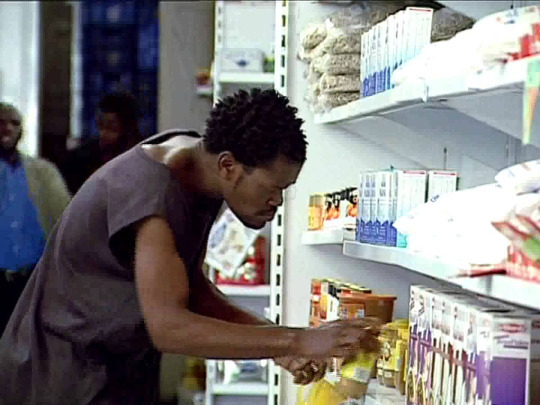
Shifting your messaging too often is one of the biggest don’ts in PR.
The launch dates weren’t the only thing RBZ shifted. The whole policy, announced back then on May 4, shifted a lot too. Within a week of the announcement, RBZ made several major changes to the policy; all USD exports would be converted to rand and Euro. Then, no, tobacco farmers and small-scale miners would now be exempt from the conversion; in fact, no, hang on, ALL exports would now be exempt from that; then, OK, no, we aren’t converting any more. Half of your export receipts will go into an RBZ account. And then, one moment, we were told we could choose not to use bond notes, and then the next, we heard we didn’t have a choice.
Chinamasa’s remarks that fake bond notes had been printed didn’t help. Even after assurances that he meant those parody notes printed by the comrades at #ThisFlag, what the public saw was a system unsure of what it was doing, or even at war within itself.
Not that monetary policy, or any policy at all, is ever cast in stone, but the tinkering really didn’t fill people with confidence, the one thing RBZ is already desperately short of.
3. Getting stuck in defensive mode

It’s never a good thing, in PR, to get stuck for too long in defensive mode. Unavoidable if you are a public official in Zim, yes. But, for the past six months, at no point was RBZ’s messaging ever ahead of the curve, dictating dialogue.
What we saw instead was Mangudya always reacting, and, with every new appearance, looking increasingly frustrated that his message was not being understood by a sceptical public.
Mangudya slumped into “me against the world” mode often, particularly at that ZNCC meeting at the Rainbow Hotel in October, where he spoke like an exasperated special class teacher failing to get through to slow-learners.
It can be frustrating when it seems the audience isn’t getting your message. But expressing that frustration has risks; you risk going off message, and you also risk losing the audience, because nobody wants to feel like they are being lectured.
What’s worse, RBZ became rather stingy with info to the media, even the most basic. As NewsDay deputy Editor Nqaba Matshazi put it, RBZ “doesn’t want with information and believes in conspiracy theories”.
4. Using language that John Banda can’t get
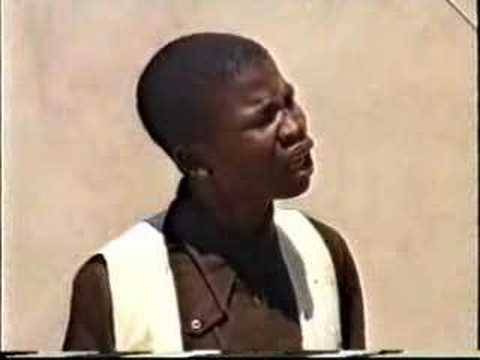
Any good communication campaign must be understood. It must answer an audience’s questions, its anxieties and curiosity.
Gono’s RBZ was some sort of mad lab where many new words - “Bacossi” etc - were brewed and gifted to the world. His monetary policy statements were often comically verbose.
This RBZ needs to dumb it down a bit. Take, for instance, its bond notes FAQs, which itself was a good idea.
What are bond notes, says the first question. It’s not a “surrogate Zimbabwe dollar for they are not currency but a domestic financial instrument” and a “zero coupon, tax-exempt financial instrument”.
Right. Can you repeat that in English, my good fellow?
FAQs, always, must always strip out all the technical language. Keep it dumb.
The promised RBZ “massive awareness campaign” has never really hit the spot.
We have seen newspaper ads featuring farmers and schoolgirls telling us we can “earn 5% more from exports and diaspora remittances”. Factual, but the campaign hasn’t really responded directly to the public’s biggest questions and, more importantly, their fears and assumptions, on bond notes.
5. Zero social media

Now, we all know central banks have traditionally been required to be starchy, boring, silent. But this is changing. And, where central banks are in exceptional circumstances such as ours, one must change.
RBZ might want to put in a call to the Russian central bank governor, Elvira Nabiullina.
They’re on familiar ground over there; Russians don’t trust their central bank, they still remember when inflation was rampant (2500% in the 90s), and the public is sceptical of everything they say. “In our situation there are no words that would be sufficient,” the bank is quoted saying in a Bloomberg article.
Yet, the bank has taken to social media to push its message, unfiltered, to the public. Many other central banks are taking this path. It’s time RBZ stepped up too.
My comrade Delta Ndou, an expert in the field of social media and stuff, has written an informative piece on RBZ and social media in her Herald column.
Rumour, especially on social media, will always travel faster than fact, especially in an angry, cynical country like Zim. But RBZ really has to put itself out there. Social media can feel like one giant kangaroo court. A massive lynch mob, just looking to get angry. But what it is, is what it is. It won’t be easy.
But maybe if you can’t change people’s minds, you can at least inform them better.
Social media can destroy even the banks that RBZ supervises. How many times have we seen “please take your money out of XYZ Bank now” messages online, only for the RBZ to respond a week later – in the newspapers? In Kenya, recently, a bank went under after what the KCB called “inaccurate social media reports”.
People have spread rumours for ages.

But the influence and threat of social media to public policy today is very real, and RBZ must be proactive.
One often sympathises with Mangudya. He sometimes comes across as sincere (well, the sincerity of a reluctant salesman sent out into the streets to sell dodgy merchandise).
There are many things far beyond RBZ’s control. Many. But there are also a few things it can still try and get right. It’s not Mangudya’s fault that he inherited a big credibility deficit at RBZ. But the hesitation and uneasy, fiddly fingers over the past half year won’t help him win any of that credibility back, not one bit.
____
PS: Be advised that all the images used in this post, stills from some of Zim’s favourite TV comedy moments, are entirely unrelated to the clearly serious matter at hand.
Honest.
_______
Wt3� �)�
0 notes